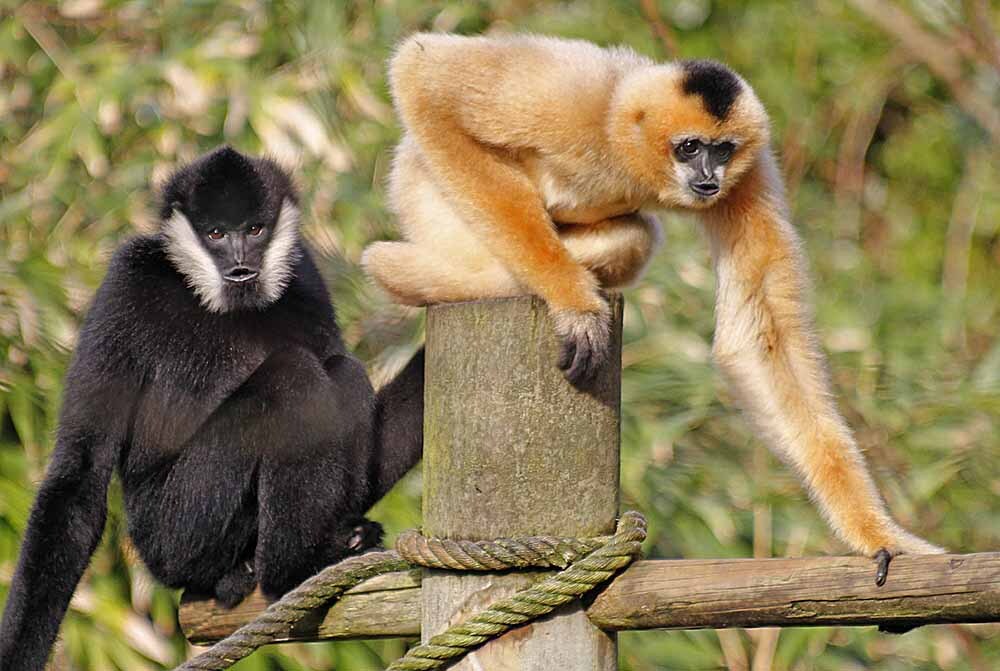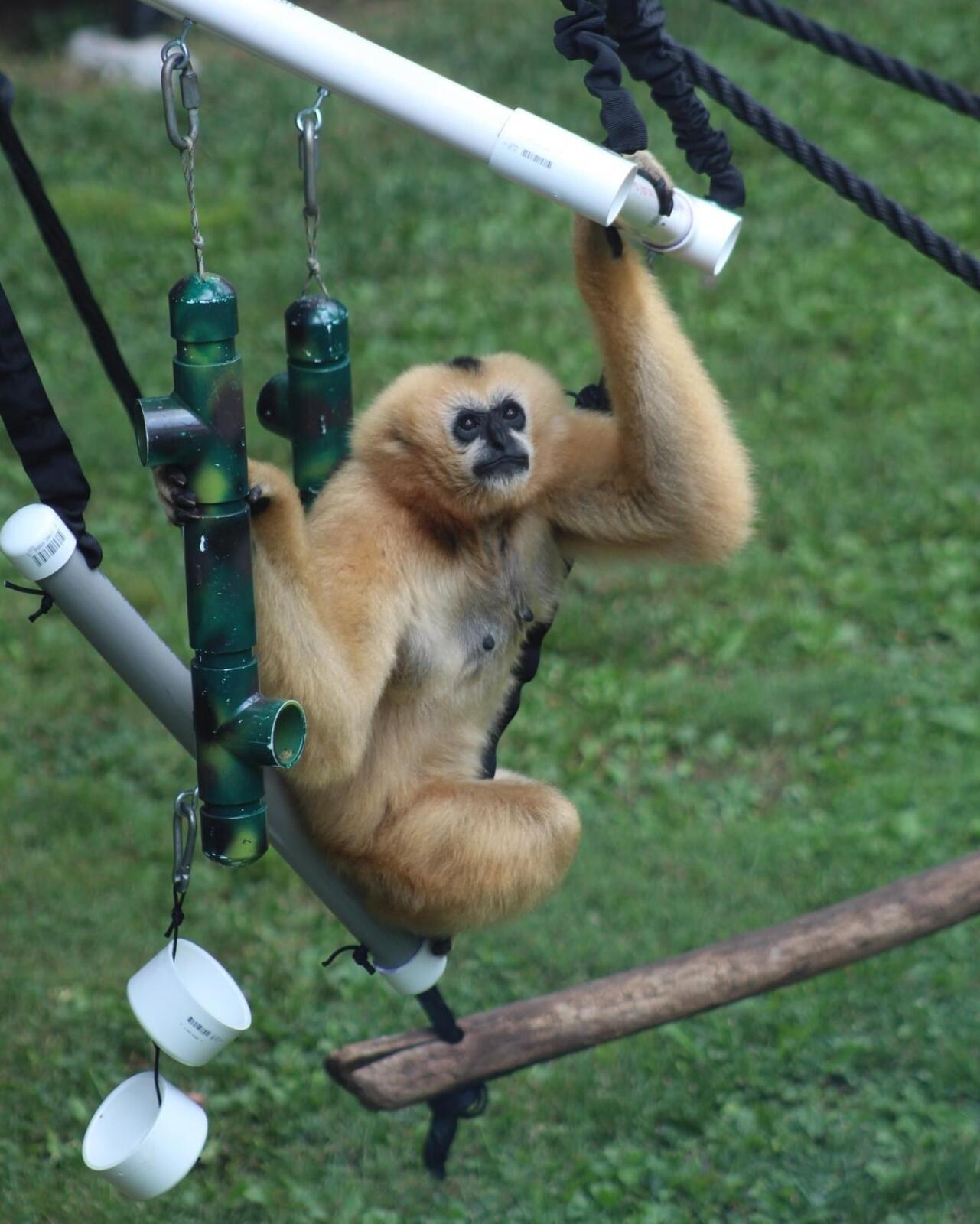White-Cheeked Gibbon
Same species. Different look.
The male and female white-cheeked gibbons look very different. This is called sexual dimorphism. The male is black and the female is golden blonde. Babies are born blonde no matter if male or female so they blend in with mom for protection. When they reach six months of age, all babies turn black like their dad. Females will then turn back to blonde when they reach maturity.


White-cheeked gibbons are one of eleven species of gibbon. These small apes seldom come down to the ground preferring to spend most of their time in the upper rainforest canopy. They hang suspended from the branches to reach their favorite food--fruit. Figs and other fruit make up most of their diet, but they will sometimes eat leaves, buds, flowers, insects, and eggs. Brachiation refers to the manner in which gibbons move through the trees. Instead of grasping branches, their four fingers (not their thumb) form a hook shape around a branch as they swing from tree to tree. Using this method, gibbons can reach speeds of 35 mph while traveling through the trees. When they do come to the ground, they walk on their legs, often with arms held above their heads for balance.
Gibbons avoid crossing water, which is why in the wild, different species are usually separated from each other. To drink, they dip their hands in water or rub their fur against wet leaves, and then lick or suck up the water. They are very territorial and defend their space with vocal and visual displays consisting of menacing gestures and loud calls that can be heard up to two miles away. They also will call to strengthen family bonds. Calls are started by the dominant female, with the male and juvenile joining in.

_____________________________________________________________________________________________________________________________________________________
How gibbons are being helped in the wild

The white-cheeked gibbon is one of the world’s most endangered species of gibbon. Major threats to this species are habitat loss due to land clearing for palm oil production and logging for the timber industry, illegal hunting for use in traditional medicines, and capture of young for the pet trade. While this species is legally protected in Vietnam, protection from habitat destruction and hunting is not legally enforced. Greater enforcement is needed.
The Chattanooga Zoo is a part of the Association of Zoos and Aquariums' Ape Taxon Advisory Group (AZA Ape TAG) that supports conservation initiatives such as anti-poaching patrols and law enforcement, additional research and support, improved management of protected areas and increased community involvement to help protect all species of apes.
Recognizing unsustainably grown palm oil in the area these gibbons are found, AZA assembled a multi-institutional task force to examine issues related to palm oil production. When grown unsustainably, palm oil can damage forests and endanger communities and wildlife. Palm oil is the world's most versatile vegetable oil and is found in several common products we use everyday such as cooking oil, soap, toothpaste, chocolate, noodles and much more.
In September 2014, AZA adopted an official position on palm oil. After adopting this position, AZA then joined the Round Table on Sustainable Palm Oil (RSPO) in order to represent the views of its member institutions with key stakeholders in the palm oil industry and to advocate for environmentally sustainable production. RSPO supports and helps organizations learn ways to harvest trees needed to make palm oil sustainably in a way that doesn't destroy the habitat of all the species living in the area.
How you can help gibbons and several other animals
- Follow the RSPO on their social media sites to keep up to date on how they are helping and how you can support them in their cause.
- You can help by buying from companies that have committed to harvesting palm oil sustainably. Check out this "scorecard" of companies and how they are doing. Compare the products you buy now to how well they are doing with their commitment to wildlife, habitats, and the communities in which they harvest from.
- Download the Palm Oil Shopping App to see a list of companies that have committed to sustainable palm oil practices. Use this list on your next grocery trip and support those companies committed to helping save wildlife.
- Chattanooga Zoo participates in the Association of Zoos and Aquariums' Species Survival Plan (SSP) for white-cheeked gibbons. By sharing research and knowledge, participating institutions work together to establish guidelines that best ensure the health of captive populations, and with success, the survival of endangered species. By supporting Chattanooga Zoo, you are our partner in saving and protecting wildlife worldwide.
.

.

.


.






